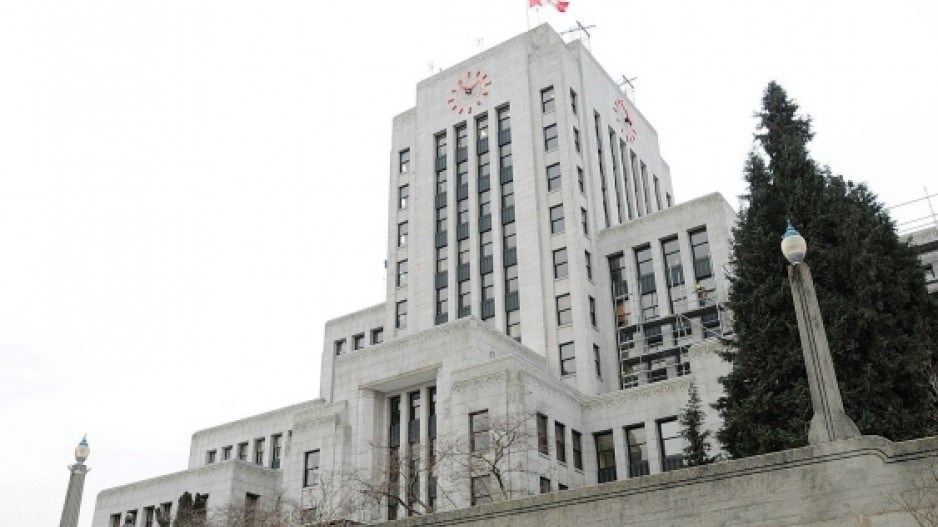Membership in the City of Vancouver’s “$100,000” club broke the 2,000 mark last year.
The city’s annual statement of financial information, published Wednesday, shows 2,023 employees of city hall, the park board and fire department were paid $100,000 or more.
In 2021, there were 1,798 employees with similar pay packets.
The latest statement shows 27 individuals grossed over $200,000, topped by city manager Paul Mochrie at $343,549.
Patrice Impey was second on the pay podium ($309,456), followed by city solicitor Francie Connell ($308,056).
Community services general manager Sandra Singh ($306,774) and deputy city manager Karen Levitt ($302,926) rounded out the top five.
General manager Donnie Rosa was the highest-paid at the park board, where 273 employees averaged $99,009.01 in earnings.
Chief librarian Christina de Castell ($267,662) earned more than fire chief Karen Fry ($263,828). Â鶹´«Ã½Ó³»Fire and Rescue Services’ 798 employees averaged $130,160 in compensation.
There were 1,100 working in engineering under that department’s general manager, Lon LaClaire ($293,356). Engineering employees’ average pay was $99,019.24 in 2022.
A total 3,639 names are on the 2022 sunshine list for employees paid $75,000 and up, a 6-per-cent increase from the 3,426 people in 2021.
The report did not offer any details about eight severance agreements in 2022 that ranged from a half-month to 17 months of gross salary.
Former mayor Kennedy Stewart was the highest-paid politician at $181,679, plus $20,577 in local expenses. Stewart spent $780,390 on political staff and other discretionary expenses. Ken Sim succeeded Stewart on Nov. 7, after a landslide win in the October civic election.
Two regional government utility boards, whose members are not directly elected, received the biggest total annual payments from city coffers: Greater Â鶹´«Ã½Ó³»Sewerage and Drainage District ($91.5 million) and Greater Â鶹´«Ã½Ó³»Water District ($89.6 million). No. 3 on the list was B.C.’s Municipal Pension Plan ($86.9 million).
The city paid $16.58 million in grants to 22 business improvement areas, including $6.05 million to the Downtown Â鶹´«Ã½Ó³»BIA. Funds granted to BIAs are raised through a special tax levy.
The Â鶹´«Ã½Ó³»Art Gallery ($2.12 million) and Â鶹´«Ã½Ó³»Symphony Society ($1.59 million) were top cultural grant recipients. The biggest grants to non-profit agencies went to the Aboriginal Land Trust Society ($6.25 million) and Lookout Housing and Health Society ($5.38 million).
For the year ended Dec. 31, city hall reported a $552.4 million surplus on $2.45 billion revenue.
The record property tax haul of $1.08 billion was $74 million better than budgeted.
City reserves stood at $1.69 billion at the end of 2022, $231.5 million higher, year over year. It also reported $611.7 million in net long-term debt.
Sim and his majority ABC city council voted Feb. 28 to hike taxes 10.7 per cent for this year’s $1.97 billion budget.


